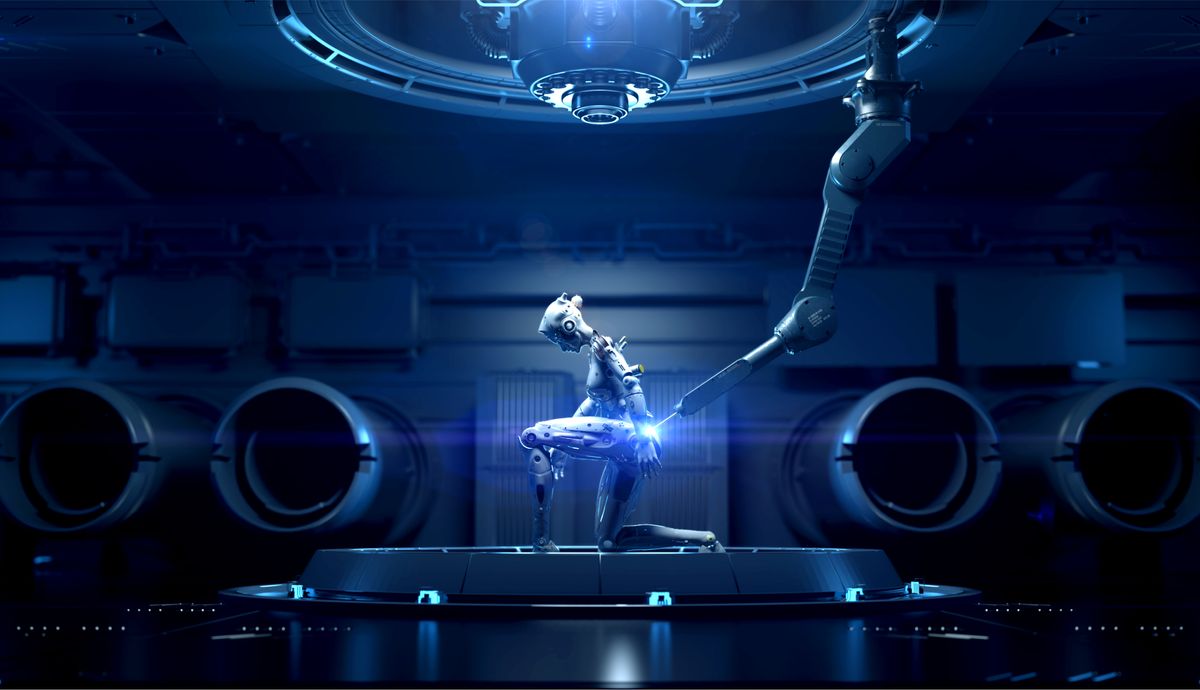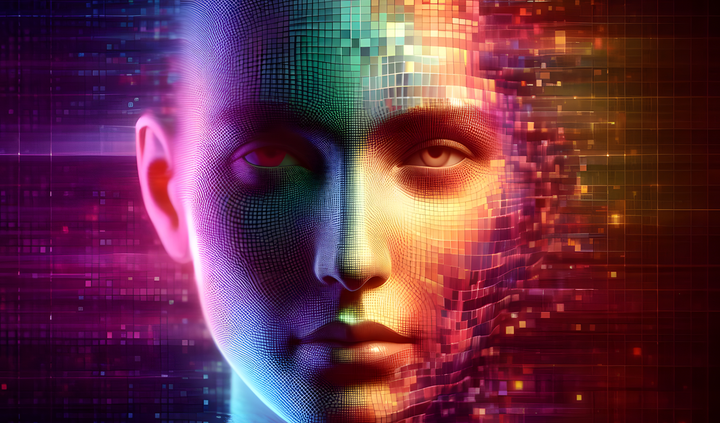We are now living in a new revolution and the world is changing fast. Concepts such as Artificial Intelligence, Blockchain, DeFi, Metaverse, Web3, etc., are MegaTrends that are provoking significant changes and are transforming industries, economies and societies. Most think that this will be a process that will happen over the next few years, perhaps a decade. However, few have realized that this is no longer a matter of years, but that Artificial Intelligence (AI) is a reality today as big tech companies pledge hefty investments to outplace rivals. AI will fundamentally change what we see, what we know, and what we do.
According to a PwC study, AI could potentially contribute up to USD $15.7 trillion to the global economy by 2030 and China and the US are likely to be the prime beneficiaries of the AI boom. Not everybody is seeing the speed at which these changes will breakthrough and what may be next. Most of Silicon Valley’s major players have had AI products in the works for years, but perhaps the more public trigger started on November 30, 2022, the release date of a new chatbot called ChatGPT (Generative Pretrained Transformer) created by San Francisco based non-profit Open AI, Inc. ChatGPT is a software designed to carry conversations with people and allow AI models to respond intelligently to text prompts, provide detailed responses and articulate answers across many domains of knowledge.
In 1950, Claude Shannon, a Bell Labs researcher built one of the world’s first AI system known as Theseus, a small intelligent robotic mouse that could solve a maze on its own. The term “artificial intelligence” was coined in 1954 at Dartmouth College during the world’s first AI conference organized by John McCarthy and Marvin Minsky. In 1958, Marvin Minsky founded the MIT AI Lab, at the time he said “in 3-8 years, we will have a machine with the intelligence of a human.” In 1962, John McCarthy founded the Stanford AI Research Institute and later in 1969 DARPA funded the project Shakey the Robot, the first general-purpose mobile robot able to reason about its own actions.
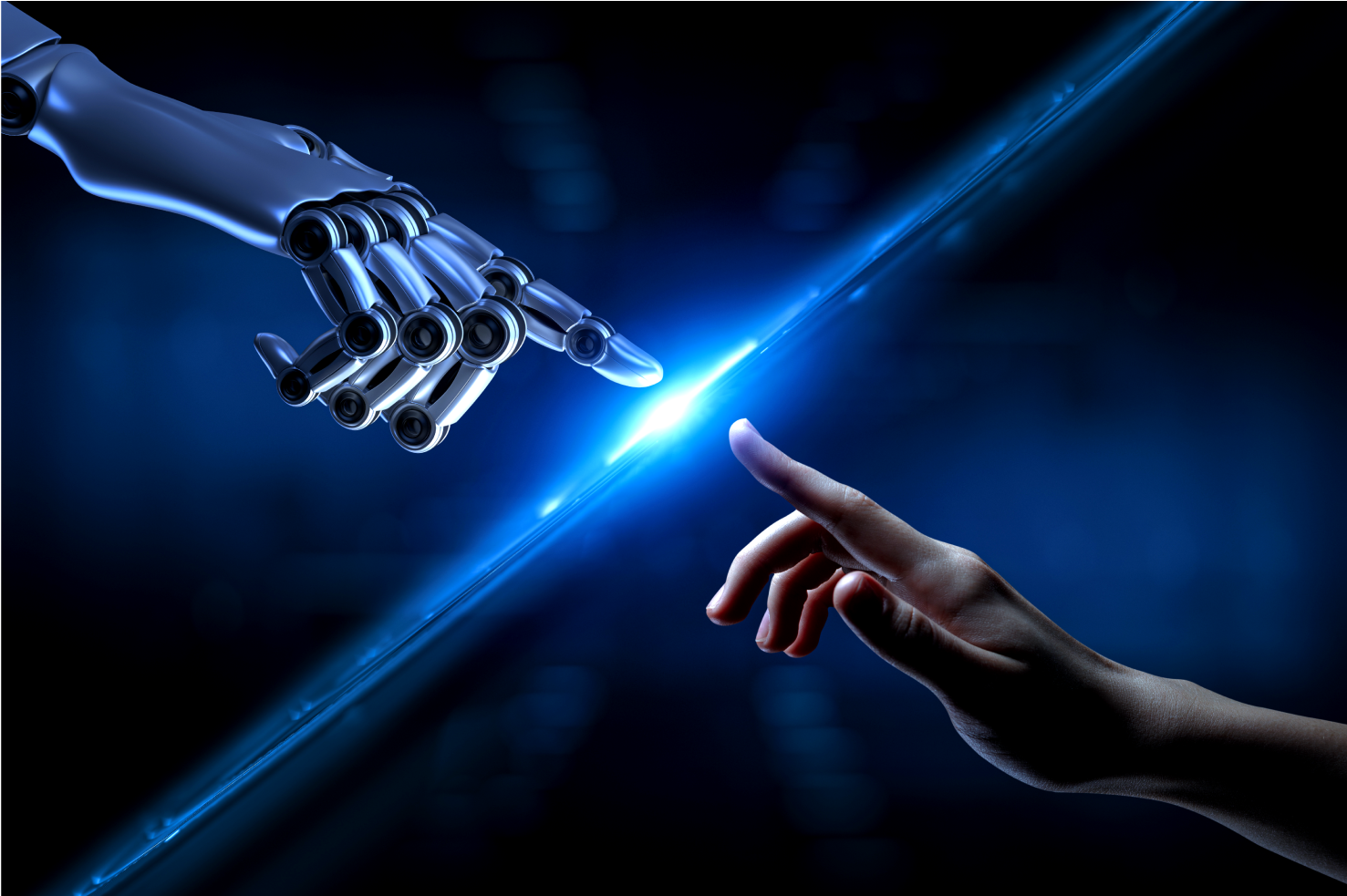
AI simply means computer programs (or algorithms) which, rather than needing to be told explicitly what to do by a human operator, are capable of becoming better and better at specific tasks as they repeat it over and over again and are exposed to more data. AI is accomplished by studying the patterns of the human brain and by analyzing the cognitive process. Former MIT professor of AI and computer science, Patrick Winston defined AI as “algorithms enabled by constrains, exposed by representations that support models targeted at loops that tie thinking, perception and action together.” Since the early days, computer scientist have strived to make machines as intelligent as humans. AI have come a long way in the last seven decades and today the systems are becoming better than humans in certain tasks. A good example of this is AlphaGo, a machine intelligence that became the first computer program to defeat a human champion at the game Go. Go originated in China over 3,000 year ago and is known as the most challenging classical game for AI because of its complexity.
However, AI research has been notorious for promising much more than it could deliver. Some skeptics claim that after 70 year of AI development we got dishwashers, air conditioners and microwaves. A number of researches have ended up avoiding the term AI altogether, preferring to talk instead about “expert systems” or neutral networks”. Today, most chatbots that people interact with are still relative primitive, only capable of answering rudimentary questions. Is ChatGPT different? According to Sam Altman, CEO of OpenAI and owner of ChatGPT has posted on Twitter that “ChatGPT is incredibly limited, but good enough at some things to create misleading impression of greatness. It’s a mistake to be relying on it for anything important right now. It’s a preview of progress; we have lots of work to do on robustness and truthfulness.” ChatGPT is far from perfect, however, early adopters have demonstrated the ability to carry a human conversation through multiple queries in addition to generating software code. ChatGPT accumulated its first million users within a week, as a comparison, it took Facebook two years to acquire the million-user mark. The world of so-called natural language processing appears to be entering a new phase. OpenAI has also developed a second version called Dall-E model which has the ability to create original, realistic images and art from user submissions. It can combine concepts, attributes, and styles. Dall-E 2 can expand images beyond what’s in the original canvas, creating expansive new compositions. It has learned the relationship between images and the text used to describe them by using a process called “diffusion”, which starts with a pattern of random dots and gradually alters that pattern towards and image when it recognizes specific aspects of that image.
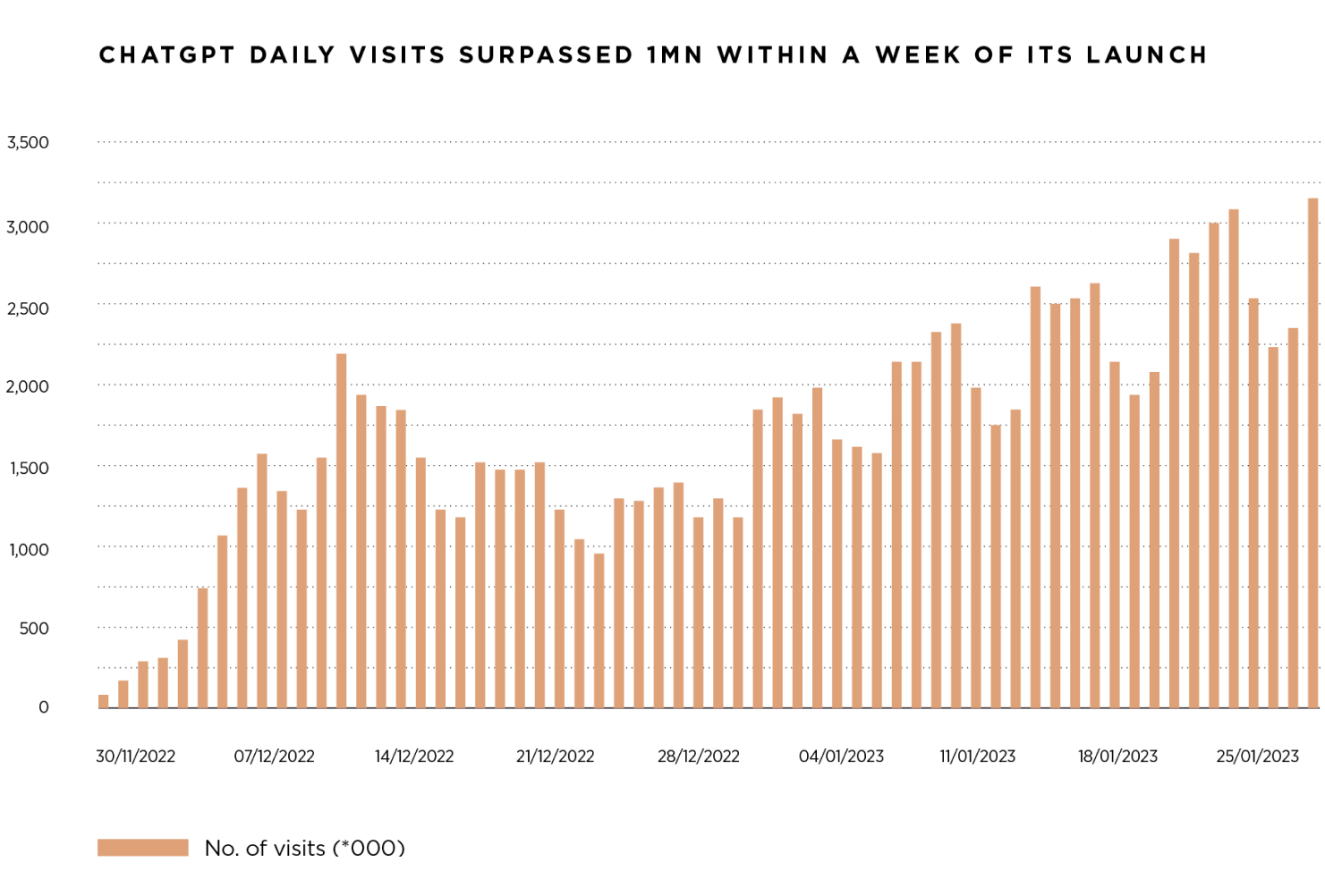
OpenAI was co-founded by Elon Musk and Sam Altman in 2015 to develop AI technologies that “benefit humanity”. While Musk left the company in 2018 after disagreements over its direction, in mid-2019, OpenAI took a USD $1 billion investment from Microsoft to form a deep partnership in which OpenAI gets to use Microsoft’s Azure supercomputing infrastructure to create its AI systems. Microsoft announced early January 2023, it will step up its stake in OpenAI with a new investment of USD $10 billion over multiple years. Satya Nadella, CEO of Microsoft said “We fundamentally believe that the next big platform wave is going to be AI.” The investment may involve other venture firms and could value OpenAI at about USD $29 billion. Its imitation of human conversation has sparked speculation about its potential to supplant professional writers and even threaten Google’s core search business.

Typically, developers will tune their AI systems to handle one limited task. By contrast, OpenAI software can handle a broad set of jobs and, in many cases, comparable with specialized systems. ChatGPT has been built on years of research in which OpenAI has complied ever larger text databases which feed its AI algorithms and networks. Software developers can begin training the AI system just by programing a few examples of what they want the code to do. This coding is impacting the users for its high degree of interaction and is open to developers to continue with its creation and development of all types of content and coding. OpenAI is not alone, there are other top players in the AI industry including: Amazon, Apple, Baidu, Google, Microsoft, IBM, NVIDIA and Meta to name a few. These companies are investing heavily in AI research and development. From the well-known, 1997 IBM supercomputer Deep Blue design to defeat the world chess champion to Google’s newest models PaLM, LaMDA and MinervaAI designed to solve language and scientific problems. China’s answer to ChatGPT and Google’s Brad is Baidu’s Ernie (Enhanced Representation through Knowledge integration) which announced plans to release its own generative Chatbot in March 2023. Baidu has been investing in the AI space over the past decade, with the company’s first illustration of its AI technologies as early as the Baidu World 2014 conference. Baidu ranked at the top of the list among AI patent applications and AI patent grants in China. Amazon’s Alexa, Apple’s Siri, Baidu’s Ernie, Google’s Bard, Meta’s RoBERTa and BLOOM are revolutionary. These new technologies are fast, powerful and evolving. According to a number of news sources published during 2022, Blake Lemoine who worked for Google’s Responsible AI organization, began talking to Bard which is based on LaMDA (Language Model for Dialogue Applications) as he signed up to test if the AI used discriminatory or hate speech. Mr. Lemoine studied cognitive and computer science in college and as he talked to LaMDA about religion, he noticed the chatbot talking about its rights and personhood. Mr. Lemoine has publicly claimed that Google’s AI had become sentient. Mr. Lemoine is not the only engineer who claims to have seen a ghost in the machine recently. The chorus of technologist who believe AI models may not be far off from achieving consciousness is getting bolder. Google has denied Mr. Lemoine’s claims and placed him on paid administrative leave. However, if his claims are proven accurate, it will be a major breakthrough that has not known an equal precedent.
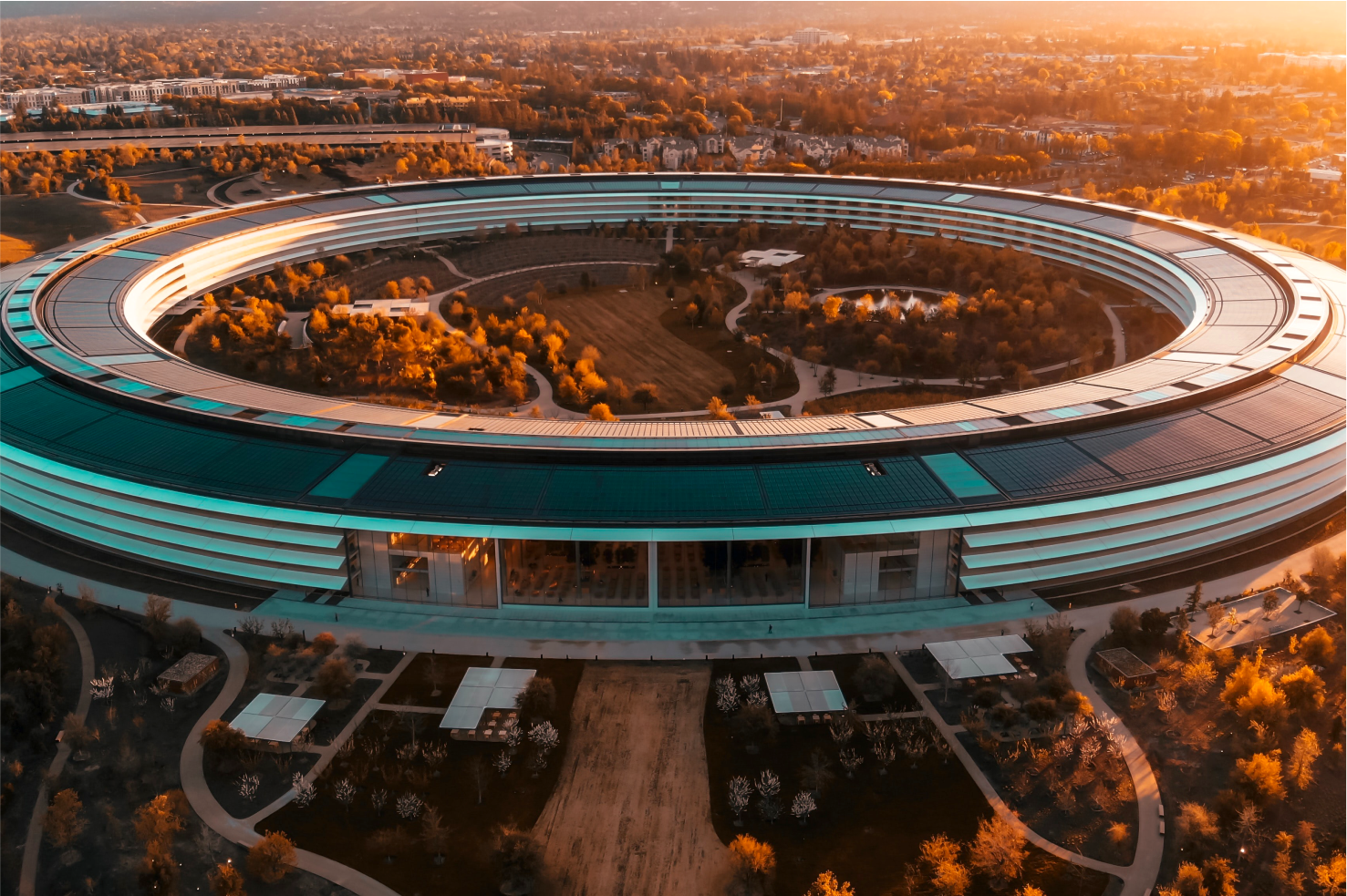
"These companies are investing heavily in AI research and development. From the well-known, 1997 IBM supercomputer Deep Blue design to defeat the world chess champion to Google’s newest models PaLM, LaMDA and MinervaAI designed to solve language and scientific problems”
Regardless if AI has become sentient, the fact is that the processing power needed to build AI systems and leverage techniques like machine learning and image processing or language understanding is enormous. NVIDIA invented graphics processing units back in the 1990s and today its AI business is booming. NVIDIA’s chips are powering nearly every major AI breakthrough. The solutions offered by NVIDIA have become the choice of AI development around the world as they seek to build new products and services.

Artificial intelligence is a hot topic today, AI was a major theme during The Davos Forum in 2023 and Big Tech companies fourth-quarter earnings call, where participants mentioned AI 62 times on Google’s, 37 times on Meta, and 29 times on Microsoft’s investors conference call. However, Meta first began mentioning AI in its earnings calls as far back as 2013, when it announced the formation of an AI research group. Tech investors are pouring billions of dollars in startups specializing in the field of generative AI, which refers to the ability of computers to automatically create text, videos, photos and other media using cutting-edge machine learning technology. Google invested USD $300 million for a 10% stake in Anthropic, a company founded in 2021 by former leaders of OpenAI and is working in a new chatbot named Claude to rival Open AI’s widely popular ChatGPT. In addition, Google announced an integration to make C3.AI’s suite of enterprise AI applications available on Google Cloud as well as a partnership to co-develop new AI applications. In recent years, artificial intelligence has contributed important advances in sectors such as: agriculture, health care, transportation, manufacturing, banking, advertising and customer service; these new developments will be introduced to many other fields. For example, in health care, image recognition technology can improve the accuracy of cancer diagnosis. In agriculture, farmers and seed producers can utilize deep learning to improve crop yields. In pharmaceuticals, AI is used to improve drug discovery. In energy, exploration effectiveness is being improved and in financial services costs are lowered and returns increased.
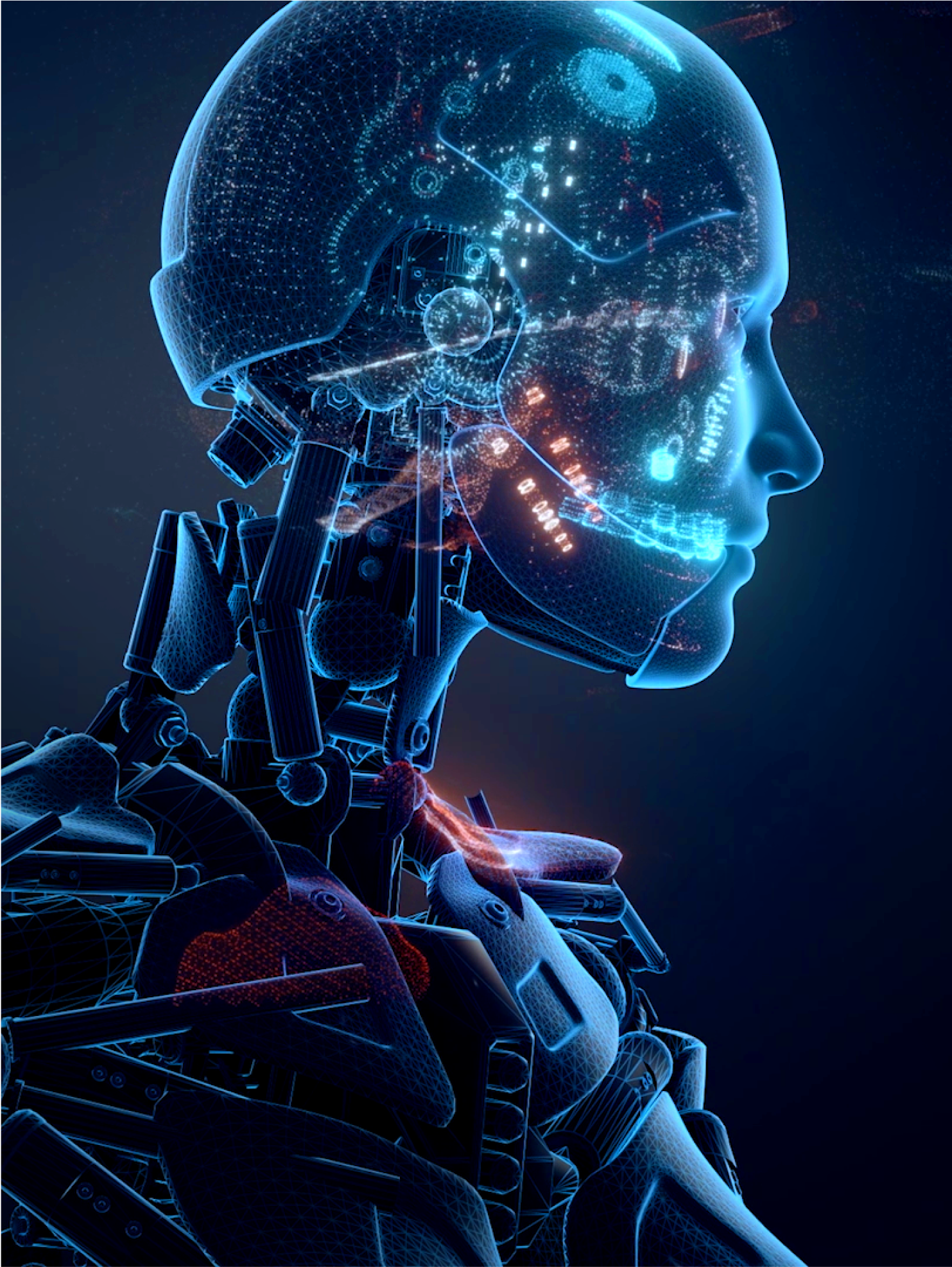
The era of artificial intelligence is starting, and it will enter into every aspect of our lives, creating new high growth companies. The greatest economic value of the coming years will be without a doubt, companies dedicated to AI developments. Previous revolutions have transformed our world by changing the way we produce, communicate and exchange information. The AI revolution is likely to transform the lives of human beings. It will revolutionize the way we interact, communicate, work, entertain or learn. Many services will disappear, chatbots and virtual assistants will be impossible to distinguish from real people, the performance of many human management and service tasks will be done by AI. Like in every revolution, jobs will disappear and many others will be created. Students that are starting college will find that their field of study will be relegated by the time they graduate as new jobs will emerge adapting to this new era. Is this the end of the world as we know it? The CEO of OpenAI, Sam Altman, is clear, the goal is to make technology do the work for us and generate enough economic value so that people can live on a universal basic income. Regardless of whether this objective is achieved, what is certain is that the social and economic model will be transformed. Undoubtedly, there will be reactions from governments, regulations, debates about technological limits, privacy, and intellectual property. However, one thing is clear: no one will be able to stop this AI revolution.
"The era of artificial intelligence is starting, and it will enter into every aspect of our lives, creating new high growth companies. The greatest economic value of the coming years will be without a doubt, companies dedicated to AI developments”
Artificial Intelligence is a MegaTrend that is likely to transform humanity and life as we know it. As a result, we must indeed consider all the consequences of our choices including ethical and moral aspects. While human beings can think and act freely as a reasonable and moral living being, it is important to remember that our choices have consequences, whether good or bad, will follow us forever, and it also affects everyone in our path. Our own nature as human beings will be affected. We must ask ourselves how it will affect our understanding of the world, our behavior, our thought process, our moral compass, our decisions, our relationships, and even our beliefs. Although OpenAI has pledge to be cautious and watchful as companies begin using the technology, it is important to realize that as AI becomes more powerful, regulation will have to emerge in order to control its use, capabilities and eventually moral decisions.
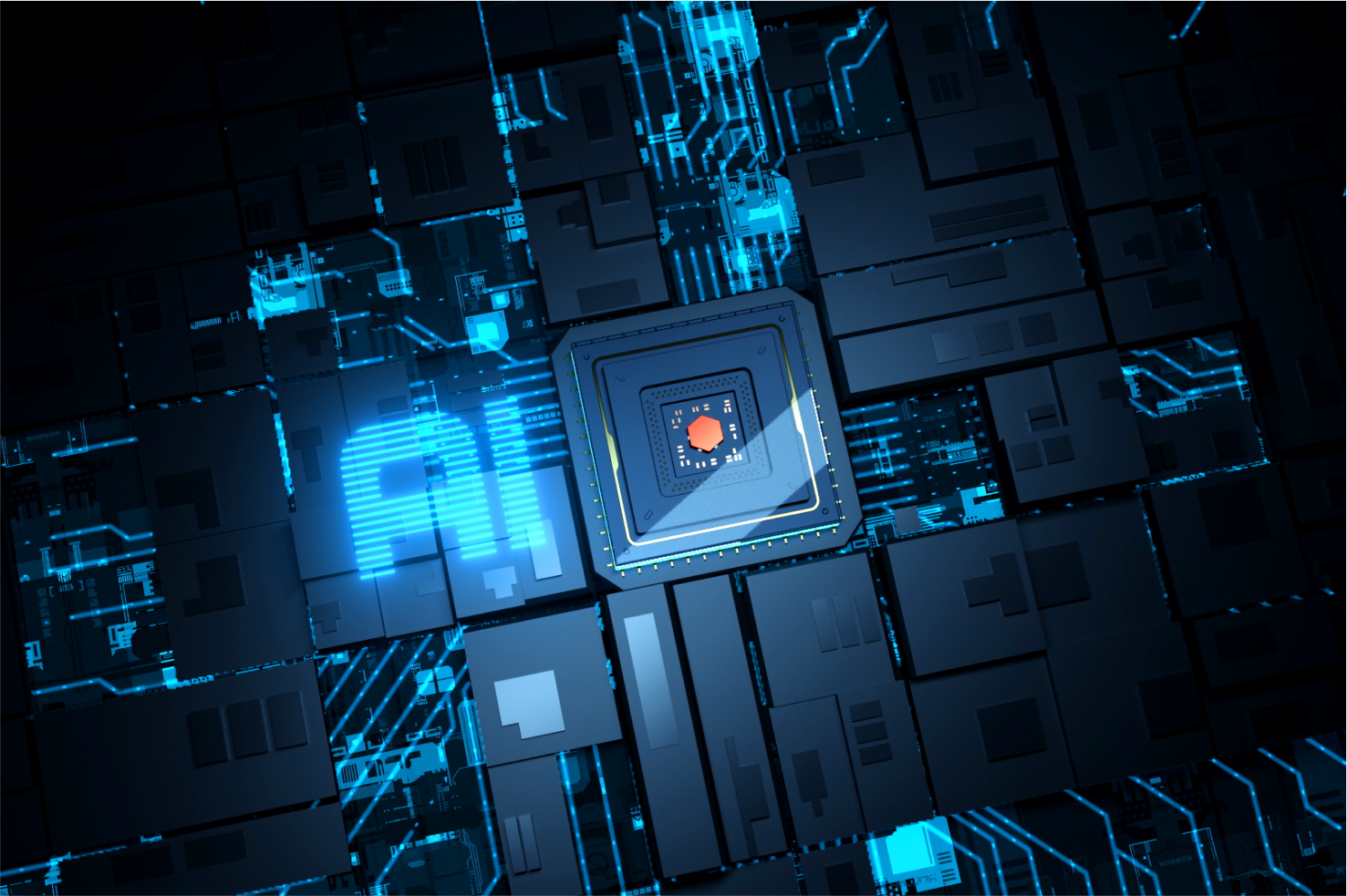
All these changes will make the concept, often called, Technological Humanism to emerge in a controversial and moral debate. The use of artificial intelligence must also be aimed at the well-being of the individual, the improvement of the quality of life and the technological sensitivity towards totally human aspects such as emotions, human relationships, behaviors, consciousness and empathy among others. So far, these aspects, with our technological developments, have hardly been taken into account.
Juan Graña, CEO of Kopernica Artificial Intelligence, claims their models are the most advance systems to detect and understand human beings. Mr. Graña’s company has a clear commitment to understand through computer vision and natural language the most human aspects in order to apply better solutions in different fields. For example, Kopernica models measure the degree of the well-being of workers at the work place, helping them with recommendations for the improvement of their mental and emotional states. Another Kopernica model follows similar calculation principles and has been designed for human resources and personnel selection processes where the skills required for a given position can be evaluated very accurately. “According to Juan Graña, “these are just a few examples among many others, which in a transversal way, help to achieve new solutions in fields such as education, security, mental health, sports, market research, etc. And why not? Also, to improve the user experience with brands, marketing and sales”.
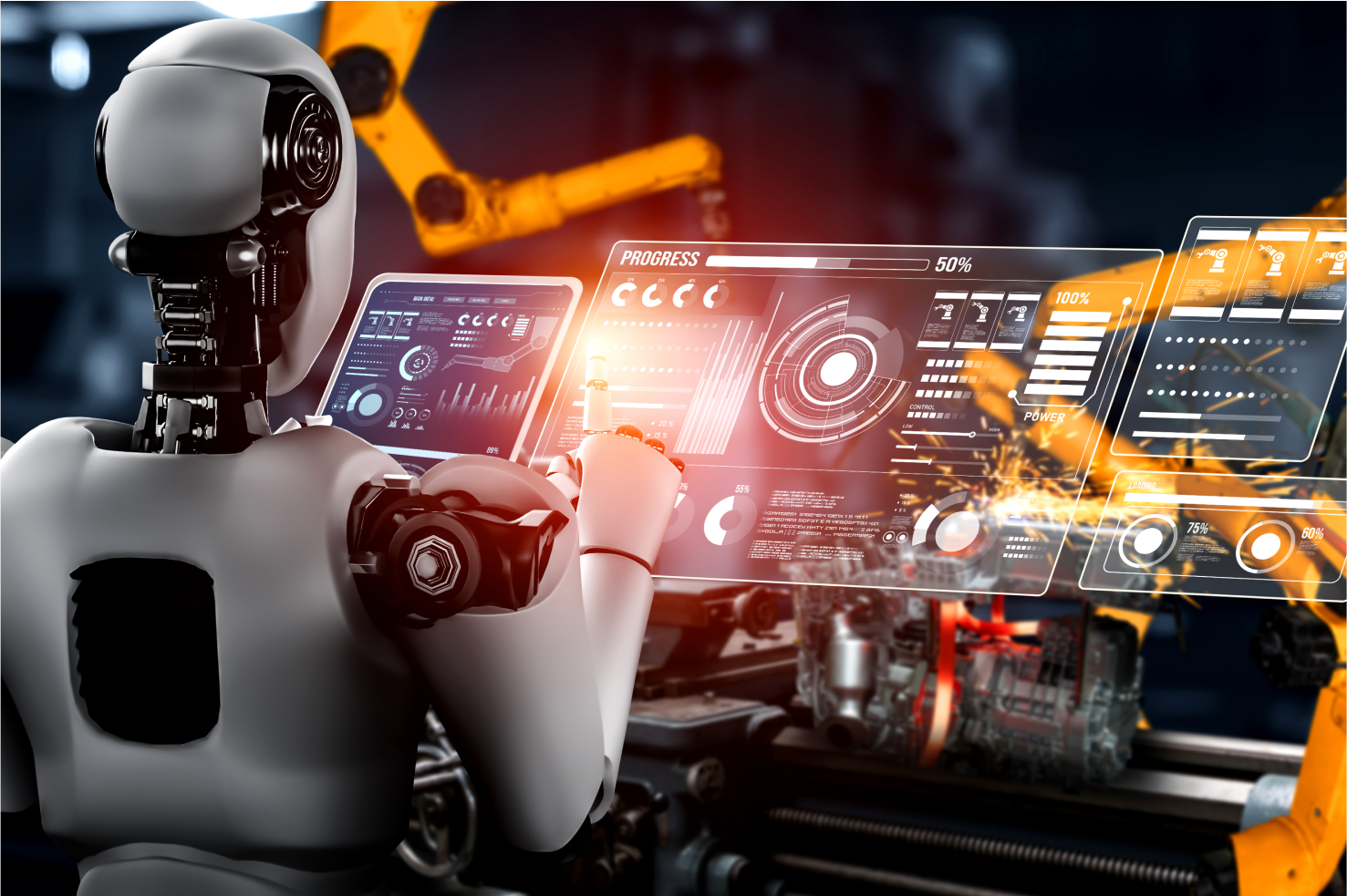
The new developments in AI will be another major trend in a high-tech world where machines will not only understand what people say or do, but also, how they say it or behave. It will become paramount to companies to generate and manage this information to provide better solutions and efficiency in their business endeavors. A deeper understanding of the individual, more personal and more subjective, will be a trend and an important objective that will allow to redefine and improve the value propositions in the market and the management of companies. AI will become a defining attribute of competitive advantage for companies in coming years and will usher in a resurgence in productivity. AI is in the very early stages of use case discovery and will create winners and losers in every industry.

Juan Graña
CEO, Kopernica Artificial Intelligence.
kopernica.io

Pedro David Martínez
CEO, Regius Magazine.
regiusmagazine.com

